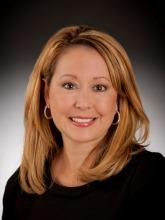Faculty engagement with fundraising is key
Some members of the CU Faculty Council say the university’s educators have historically been underutilized in the university’s fundraising mission, and CU Vice President of Advancement Kelly Cronin says that will change.
Cronin, who joined CU last year to lead the university’s revamped fundraising efforts, spoke to the council at its May 8 meeting at 1800 Grant St.
“I started Sept. 1, and it has been a whirlwind – changing a culture that was pretty apathetic,” Cronin said. “We’re working really hard to change that.”
During a question-and-answer session with Cronin at the meeting, CU Anschutz Medical Campus Faculty Assembly Chair David Port said one thing in need of change is an under-reliance on faculty when fundraising officers are engaged with donors.
“It comes up all the time at our campus, where there’s a long history of foundation people not using the people inventing the technology to the best effect,” Port said. “If you don’t have the scientist or engineers or clinicians helping to sell the technology, you’re missing out.”
“You couldn’t be more correct,” Cronin replied. “We can talk about the science … but you’re the experts.”
Pam Laird of CU Denver echoed what Port said.
“People like stories – and historians are really good at telling stories,” Laird said. “Nobody from fundraising ever asked us to tell a story. One of the things I appreciate with the transition in (advancement) is that we’ve had a whole lot more success in getting folks in the development office to listen to us.”
Cronin said her office has begun the process of providing basic training to its development officers, and that it plans to provide training, from basic to advanced, for any interested faculty and staff.
Cronin told the council that all faculty members should be familiar with a development officer on their campus. “If you don’t know your development officer, please let me know, because it would mean they’re not getting out to meet with our academic partners.” She invited faculty to call or email her with any questions.
In other business at last week’s Faculty Council meeting, the last of the academic year:
- The council gave its approval to several proposed changes to Administrative Policy Statements pertaining exclusively or partly to faculty. The changes are slated to take effect July 1.
- During his report to the council, Dan Montez, director of the Office of Policy and Efficiency, said the President’s Task Force on Efficiency will be exploring the current administrative burden on faculty, which a recent survey indicated has grown worse over the past five years.


